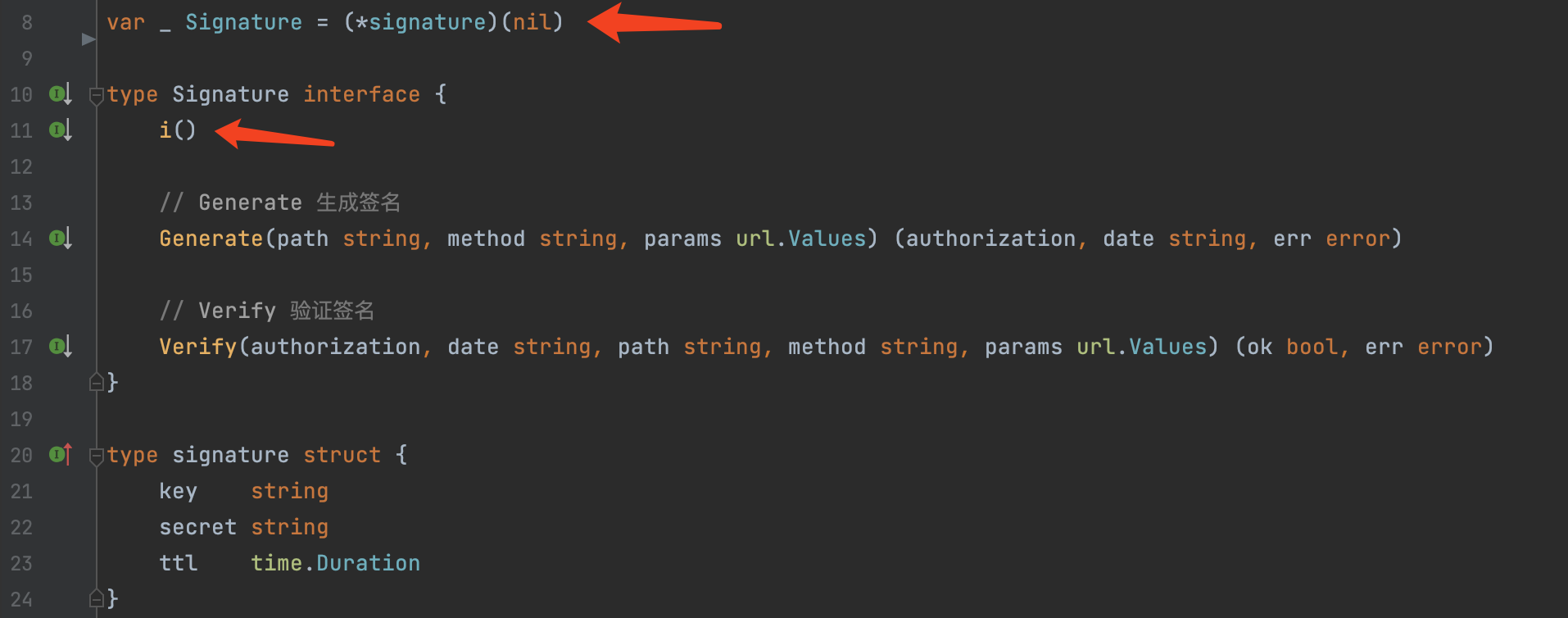前言
根据使用者的反馈,回答关于开源项目:go-gin-api 中被频繁问到的两个代码写法问题。
以如下代码片段为例:

- 第 8 行,这种写法是什么意思?
- 第 11 行,为什么定义一个 i() 方法?
问题一
var _ Signature = (*signature)(nil)
这代码是什么意思?
强制 *signature 去实现 Signature 接口,编译器会检查 *signature 类型是否实现了 Signature 接口。
来看一个例子:
package mainimport "fmt"var _ Study = (*study)(nil)type study struct {Name string}type Study interface {Listen(message string) string}func main() {fmt.Println("hello world")}
上面代码会输出 hello world 吗?
不会!
这时会输出:
./main.go:5:5: cannot use (*study)(nil) (type *study) as type Study in assignment:*study does not implement Study (missing Listen method)
如果去掉这一行:
var _ Study = (*study)(nil)
这时就可以输出 hello world 了。
问题二
i()
为什么在接口中定义一个 i() 方法?
强制 Signature 接口中所有方法只能在本包中去实现,在其他包中不允许去实现。因为接口中有小写方法,所以在其他包无法去实现。i() 表示一个小写方法,起其他名字也可以。
来看一个例子:
package studytype Study interface {Listen(message string) stringi()}func Speak(s Study) string {return s.Listen("abc")}
定义了一个 Study 接口,接口中包含两个方法,其中就有一个 i() 。
定义了一个 Speak 方法,入参是 Study 接口,方法体是执行接口中的 Listen 方法。
接下来看另一个文件:
type stu struct {Name string}func (s *stu) Listen(message string) string {return s.Name + " 听 " + message}func (s *stu) i() {}func main() {message := study.Speak(new(stu))fmt.Println(message)}
定义了一个 stu 结构体,这个结构体实现了 Study 接口中的方法,那么上述程序会正常输出吗?
不会!
这时会输出:
./main.go:19:28: cannot use new(stu) (type *stu) as type study.Study in argument to study.Speak:*stu does not implement study.Study (missing study.i method)have i()want study.i()
如果去掉接口中 i(),会正常输出:听 abc
小结
以上两个是读者在学习代码的过程中最常问的问题,希望这次能够帮大家解惑。
另外 option 设计模式,问的也不少,大家可以看下这篇文章:《函数的不定参数你是这样用吗?》

